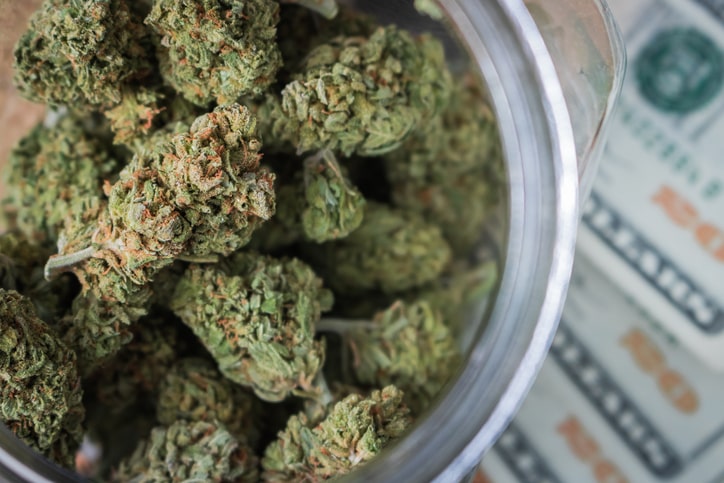As most in the cannabis industry are aware, December 31, 2022, marked the deadline for new Provisional application submissions for California commercial cannabis business licenses. Furthermore, those operating under a Provisional license have until December 31, 2025 as the final date to submit a provisional license renewal. After that date, cannabis licensees must convert their provisional license to an annual one. Licensees need to “actively and diligently” pursue their annual license with the Department of Cannabis Control (“DCC”) whilst continuing to comply with all applicable laws and regulations.
Below, we explore the various upcoming important deadlines and requirements for cannabis licensees, with a focus on the challenges presented in the City of Los Angeles.
California Commercial Cannabis Business Deadlines
On January 1, 2026, DCC will cease granting renewals of all California commercial cannabis provisional licenses, and existing provisional licenses will no longer be in effect in the state. Accordingly, in order to continue operating in California, a commercial cannabis business will have had to obtain an annual state license, which is much more onerous of a process than applying for a Provisional license was.
Although in many cases a California commercial cannabis business can effectively transition into an annual state license, in some cases that is a much more difficult feat. The greatest challenge is often CEQA.
For example, Los Angeles operates their cannabis program very differently from other cities. Whereas several other southern California cities have complied with CEQA requirements and established city protocol for permits, LA has until now effectively failed to pave a pathway for many operators to be able to comply with state annual requirements. Specifically, in the City of Los Angeles, the Department of Cannabis Regulation (“DCR”) files the required CEQA exemption paperwork as one of the last steps, only after the Cannabis Regulation Commission (“CRC”) recommends approving the license. Furthermore, the City is prioritizing retail applications over non retail and, as published on the City’s website, DCR has only granted about 50 CEQA exemptions out of the approximately 200 licensed dispensaries in the city. As far as the non retail licenses (manufacturing, distribution, and cultivation) the DCR has not reported having approved any non retail licenses.
Since CEQA is crucial to state licensing, operators in the City of LA are struggling to comply with California CEQA requirements in order to obtain a State annual license. Accordingly, for many licensees within the City of Los Angeles, the conversion process from a Provisional to an Annual license has been delayed and they are racing against the 16 months that remain on the State’s deadline. The DCR has stated they anticipate getting through review of all state provisional licensees before June 2025 and they are hopeful that they will be able to move through all retail licenses before the end of the 2024 calendar year.
To Obtain a CEQA Exemption Applicants Must First be Approved for an Annual License.
I. Los Angeles’ Approval Process for an Annual License
-
- Receive A Notice of Complete Application – Start of Annual License Process.
- DCR May Deny Annual Application or Make a Recommendation to CRC. The DCR has 90 days from the Notice of Complete Application, to either deny or recommend the license approval to the Cannabis Regulation Commission. If the DCR recommends approval, a community meeting will be scheduled. If the DCR denies the Annual License, within 15 days of receipt, the licensee may appeal the DCR’s denial to the CRC.
- Licensees Must Post Notice of Complete Application visible to the Community and Contact Their Neighborhood Council.
- The Community Meeting (generally only for retailers) provides an opportunity for testimony in favor (and against) the project.
- Post Public Hearing – Approval or Appeal. If the CRC voted to approve the Annual License, DCR will file documents in accordance with CEQA. If the CRC did not approve the Annual License, the Applicant may request an appeal to the Los Angeles City Council within 15 days of the date on the decision letter.
II. Other Deadlines for LA Operators:
A. Obtain Health Permit/Emblem Placard and Prepare for LADCR Final Inspection – Retail Businesses/Microbusinesses. All Licensees in the City of Los Angeles must obtain a Public Health Permit for EACH Commercial Cannabis Activity. Temporarily Approved Retailers must obtain and post an Emblem Placard by January 1, 2025. Retailers/Microbusinesses must also obtain a Building Permit for all activities.
B. Health Permit for Non Retail Businesses.
-
-
- February 28, 2025 – Submit building plans to the LA Department of Building and Safety (LADBS).
- February 28, 2026 – Obtain a clearance or permit from the Los Angeles Fire Department (LAFD FDS).
- February 28, 2027 – Obtain Certificate of Occupancy.
- June 30, 2027 – Deadline for all Los Angeles licensees to obtain a Health Permit.
-
C. Pass LADCR Final Inspection, Obtain Operating Permit
The final step in the licensing process within the City of Los Angeles is to obtain the Operating Permit. Unless a licensee has Temporary Approval, a cannabis licensee will need to obtain an Operating Permit before beginning operations. However, by January 1, 2028, all licensees (including those with Temp. Approval) must obtain an Operating Permit.
Contact Our California Cannabis Business Attorneys for Help
Navigating California’s cannabis laws requires a deep understanding of regulations that vary significantly from city to city, making the guidance of a California cannabis attorney essential. Each city’s licensing, zoning, operating restrictions and taxation rules can create a complex legal landscape for cannabis businesses—significantly impacting provisional and annual licensing changes.
Our Los Angeles cannabis attorneys ensure compliance with state and local regulations, helping you avoid costly fines, license revocations, or legal challenges. With their experience, we can guide you through the intricacies of the laws and help protect your business while ensuring that you operate within each city’s legal framework. Contact us today to learn more.

